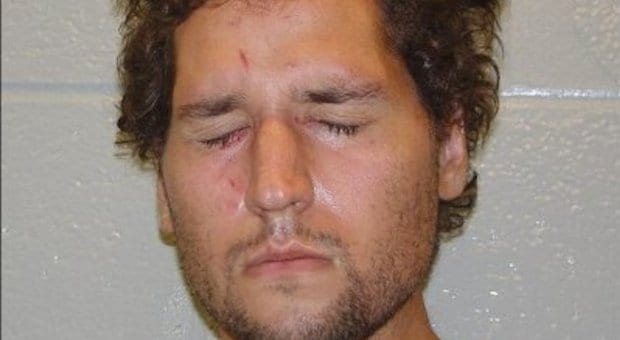A confessed triple murderer may not serve jail time in Canada after telling his psychiatrist that he killed two Halifax gay men to rid the city of “demons.”
Glen Race was convicted on two counts of murder, one first degree and one second, in the 2007 stabbings of Trevor Brewster and Michael Knott, who were picked up in known Halifax-area cruising spots. In Brewster’s case, his body was clumsily hidden under a dock close to where he’d been stabbed.
While undergoing a psychiatric assessment to determine whether he can be held responsible for the murders, Race told a doctor, “Gays are easy targets . . . because they got me into their personal space for what the situation demanded,”according to a Canadian Press report.
Race is a diagnosed paranoid schizophrenic, and as his hearing continues this week, it’s expected that he’ll be deemed not criminally responsible for his actions. If he is deemed responsible, he could see life in prison.
According to the psychiatrist, Race said, “I was god . . . I got sent to Halifax to wage a war on demons.”
But even if the Nova Scotia court opts for treatment for Race, rather than jail time, he could still face life in prison in New York, if he is extradited. Race was convicted of first degree murder and sentenced to life in prison without parole after fatally shooting an American man at a hunting lodge. American police caught Race in Texas just before he crossed into Mexico.
The organized nature of the crime, and Race’s subsequent escape, show an unusual level of organization, the psychiatrist told the court. He also said that phone calls obtained by the court, which caught Race and his father discussing the process of how to be declared not criminally responsible, are troubling. But the Toronto-based psychiatrist determined that Race wasn’t exaggerating his illness to avoid jail time.
Nevertheless, the court-appointed mental health expert said he believes that Race was delusional at the time of the murder and has encouraged a New York law firm to appeal his US conviction.
At the time of the Halifax murders, police took the extraordinary step of warning all men who frequented cruising sites, noting that they might become targets.
After Race was arrested, two weeks after killing Knott, his family released a statement to the media expressing “the tremendous sorrow, the grief and the disbelief that has gripped our family as the terrible events of the past weeks have unfolded.” They said they repeatedly tried to have Race committed to an institution but were unable to do so under the law.
Warning signs had appeared before the murders. Neighbours at the time recalled seeing Race run naked near their home in north-end Halifax and said he often started fires in their backyard. In 2005, he was arrested after being found in a cabin in rural Nova Scotia during the middle of winter. He asked to undergo a psychiatric assessment.
Knott, 44, was a former military cook who did not appear to be out of the closet. He was murdered by Race in a remote industrial section of Dartmouth, near Halifax’s airport. He was survived by a wife and two children.
Brewster, 45, worked at a Halifax pub, and police believe he picked up Race on Citadel Hill, a historic fortress at the south end of the city’s downtown that is one of the city’s most-visited cruising spots.


 Why you can trust Xtra
Why you can trust Xtra


